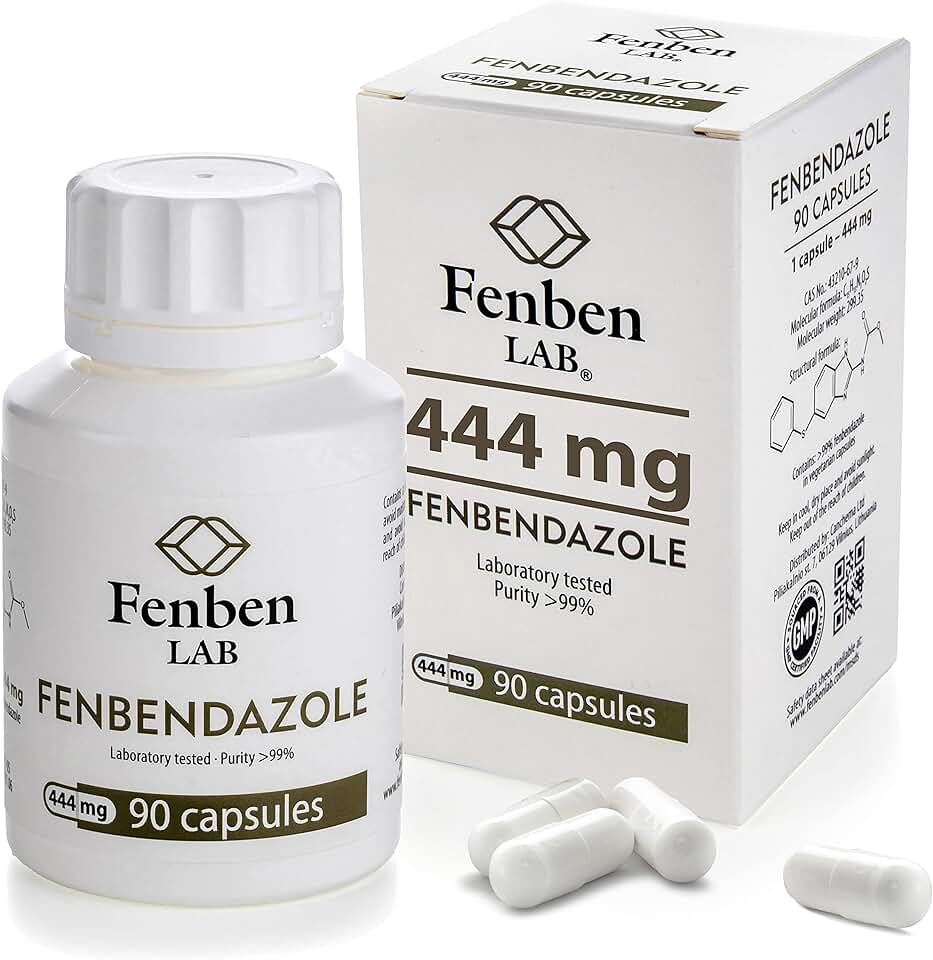Fenben is a dog deworming medicine that has gained popularity in social media posts and TikTok videos claiming to cure cancer. However, these claims have no scientific basis.
We encapsulated FEN and RAPA in various polymers and selected mPEG-b-PCL micelles for their consistent size and high encapsulation efficiency (EE) and drug loading capacity (DL). The combination of these drugs had synergistic anticancer effects in both unirradiated and irradiated tumors.
Cell Cycle Inhibition
Fenbendazole suppresses the growth of cancer cells by interfering with a number of cellular pathways. These include inhibition of microtubule dynamics, p53 activation, and modulation of genes involved in multiple cellular pathways. These effects also lead to decreased glucose uptake in cancer cells by down regulation of GLUT transporters and key glycolytic enzymes.
Moreover, fenbendazole triggers necroptosis in 5-fluorouracil-resistant colorectal cancer cells, resulting in mitochondrial injury and caspase-8-dependent apoptosis. Furthermore, fenbendazole reduces expression of Beclin-1 and GPX4, promoting ferroptosis-augmented apoptosis in these cells.
Finally, fenbendazole inhibits the anchorage-independent growth of colonic cancer cells in vitro by interfering with the formation of the cytoskeleton. Cells were treated with varying doses of fenbendazole and subjected to soft agar assays. Colony formation was analyzed and correlated with data from cell morphology observations (Fig. 9a). In addition, apoptosis of H460 lung cancer cells was evaluated by Hoechst 33342 and TdT staining. Treatment with 1 uM of fenbendazole for 48 h resulted in a significant reduction in the number of colonies formed in soft agar assays.
Apoptosis
A few studies have shown that fenbendazole can slow cancer cell growth in cells in the lab (in vitro). But it’s important to note that these aren’t clinical trials, and there’s no evidence that fenbendazole has any effect on humans with cancer.
Benzimidazole drugs are known to interfere with the energy metabolism of cancer cells by blocking glucose uptake. Cancer cells consume a lot of glucose to grow and survive, so depriving them of this fuel can cause them to die. In a study on colorectal cancer cells, researchers found that fenbendazole killed them by stimulating apoptosis. The researchers suspect that this is because it interferes with the cell’s mitochondrial energy production system.
Inhibition of Glycolysis
Research has shown that fenbendazole interferes with glycolysis, causing cancer cells to die. This effect is especially useful for patients who cannot tolerate cytotoxic chemotherapy. In addition, fenbendazole can prevent cancer cells from mutating the stress signals that tell the immune system to destroy them.
In lab experiments, fenbendazole inhibited glucose uptake in H460 and A549 cancer cells by disrupting tubulin dynamics, activating p53, and down regulating GLUT transporters and key glycolytic enzymes. Glucose oxidation was also reduced in these cells.
Researchers encapsulated these drugs in various polymers to determine their solubility and anticancer properties. They selected the mPEG-b-PCL micelle for its high encapsulation efficiency and solubility. A biodistribution study showed that RAPA and fenbendazole distributed into the livers, spleens, kidneys, hearts, lungs, and muscles of mice in equal amounts following administration via IV. A synergistic effect was observed when the fenbendazole:RAPA molar ratio was 1:1. This suggests that fenbendazole:RAPA has the potential to be used in combination therapies for cancer treatment.
Inhibition of p53
The multifaceted anticancer effects of fenbendazole (FZ) may be due to its disruption of microtubules, induction of p53 tumor suppressor and interference with glucose metabolism. It is known that malignant cells consume glucose several folds higher than normal cells. FZ prevents glucose uptake in cancer cells, leading to a build up of cytochrome c and subsequent mitochondrial apoptosis.
Moreover, FZ significantly reduces the expression of GLUT transporters and glycolytic enzymes in colorectal cancer cells. These results suggest that a combination of microtubule disruption, p53 activation and inhibition of glucose metabolism is responsible for the efficacy of FZ against colorectal cancer.
Interestingly, FZ treatment also induces acetylation of tubulin in cancer cells, which enhances stress-mediated translocation of WT p53 to mitochondria. This is correlated with enhanced apoptosis and supports the concept that p53 is a pro-apoptotic protein. Furthermore, the phosphor/total form of p53 was increased in fenbendazole treated cells but not the expression levels of p38, ERK or JNK.fenben for cancer

